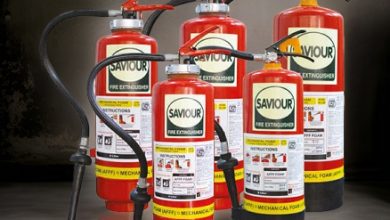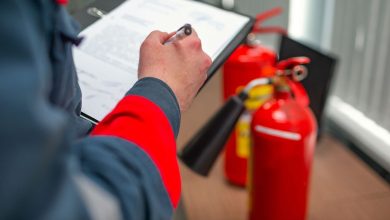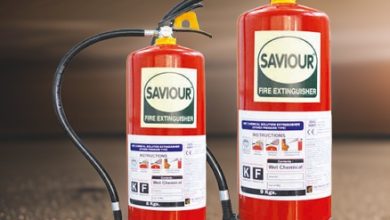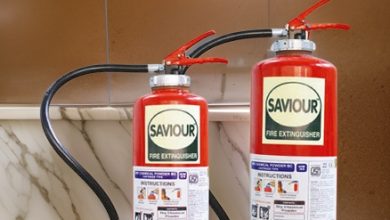Understanding the ABC Ratings of a Portable Fire Extinguisher
Portable fire extinguisher
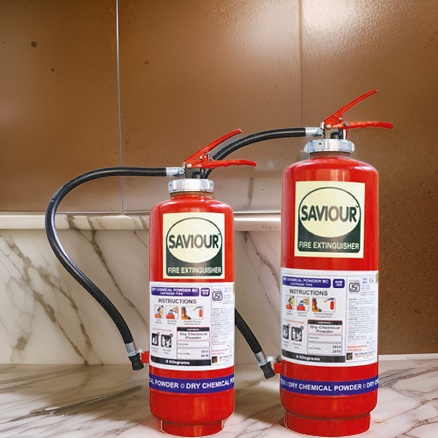
Fire safety is not just about having the right equipment—it’s about knowing how to use it and when. One of the most important tools in fire preparedness is a portable fire extinguisher, and understanding the ABC ratings on these devices is crucial to using them effectively in different fire scenarios.
At Sri Triveni Crafts, we believe that education is just as important as equipment. This guide will help you understand what the ABC ratings mean and how they affect your choice of fire extinguisher for homes, vehicles, and commercial spaces.
What Are ABC Ratings?
A Quick Overview
The ABC rating on a portable fire extinguisher refers to the classes of fire the unit is designed to combat. These ratings are universal indicators that help users quickly understand what types of fires the extinguisher is effective against:
-
Class A – Fires involving ordinary combustibles like paper, wood, and cloth
-
Class B – Fires involving flammable liquids such as gasoline, oil, and paint
-
Class C – Fires involving electrical equipment and wiring
An extinguisher marked with an ABC rating is versatile and ideal for general use in a wide range of environments.
Class A: Combustibles
Class A fires are the most common. They typically occur in homes, offices, and schools. This class includes materials that burn easily, such as:
-
Paper
-
Cardboard
-
Fabrics
-
Wood
A fire fighting extinguisher with an ABC rating uses monoammonium phosphate—a dry chemical powder that smothers flames by removing the heat component of the fire triangle.
For residential buildings or schools, contacting experienced fire extinguisher dealers can help you choose the right solution based on layout and risk assessment.
Class B: Flammable Liquids
These fires are usually found in garages, industrial sites, or kitchens. They involve:
-
Gasoline
-
Kerosene
-
Grease
-
Oil-based paints
Class B-rated extinguishers put out flames by cutting off the fire’s oxygen supply and preventing re-ignition. If you operate a fuel station or a mechanical workshop, working with a trusted fire extinguisher supplier ensures you’re equipped to handle liquid-based fires quickly and safely.
Class C: Electrical Fires
Class C fires involve energized electrical equipment. These can include:
-
Circuit breakers
-
Wiring
-
Computers and servers
-
Home appliances
In these situations, using water-based extinguishers is extremely dangerous. ABC-rated portable fire extinguishers use non-conductive dry chemicals, making them safe for electrical fires.
A certified fire extinguisher manufacturer in India like Sri Triveni Crafts can provide CO₂ and ABC extinguishers suitable for office spaces and data centers.
Why ABC-Rated Extinguishers Are Ideal for Most Spaces ?
ABC-rated extinguishers are often recommended because they are multi-purpose. One unit can handle different types of fires, making it a cost-effective and practical choice for:
-
Homes and apartments
-
Small businesses and shops
-
Vehicles and RVs
-
Schools and institutions
They are also easier to manage in environments where more than one fire risk exists. You can speak with reliable fire extinguisher dealers to help identify how many you need and where they should be installed.
When You Might Need a Different Rating
Although ABC extinguishers are incredibly versatile, they aren’t suited for all fire types. For example:
-
Class D fires (involving flammable metals) need specialized powder extinguishers.
-
Class K fires (involving cooking oils in commercial kitchens) require wet chemical extinguishers.
In such cases, it’s best to consult a fire extinguisher supplier who can provide recommendations based on your industry or environment.
Maintenance and Safety Tips
Ensure Your Extinguisher Is Ready When You Need It
Owning a portable fire extinguisher is only useful if it’s in working condition. Here are a few simple tips:
-
Check the pressure gauge monthly.
-
Make sure it’s not blocked or hidden from view.
-
Schedule professional servicing annually.
-
Learn the PASS technique: Pull, Aim, Squeeze, and Sweep.
When in doubt, rely on your local fire extinguisher manufacturer in India for guidance on inspection and recharging services.
Conclusion
The ABC ratings on a portable fire extinguisher aren’t just letters—they’re your first line of defense in a fire emergency. Understanding these ratings ensures you’re using the right extinguisher for the right type of fire, helping to prevent injury, reduce property damage, and potentially save lives.
Whether you’re safeguarding your home, office, or workshop, Sri Triveni Crafts is here to provide expert advice and high-quality fire safety equipment.
Explore our full range of products at:- https://www.sritrivenicrafts.com/
FAQs
1. Can I use an ABC extinguisher for a kitchen grease fire?
While ABC extinguishers may help, a Class K extinguisher is specifically designed for grease fires in commercial kitchens.
2. What does the number before the ABC rating mean?
It indicates the extinguisher’s effectiveness. A higher number means more fire-fighting power.
3. Are ABC extinguishers safe for electronics?
Yes, they are non-conductive, but they may leave residue. For sensitive electronics, a CO₂ extinguisher might be better.
4. Do ABC extinguishers expire?
Yes, most last 5 to 15 years. Regular inspections help determine if yours needs replacing.
5. Where should I store an ABC-rated extinguisher at home?
Install in easily accessible areas—near the kitchen, garage, and main exits.
